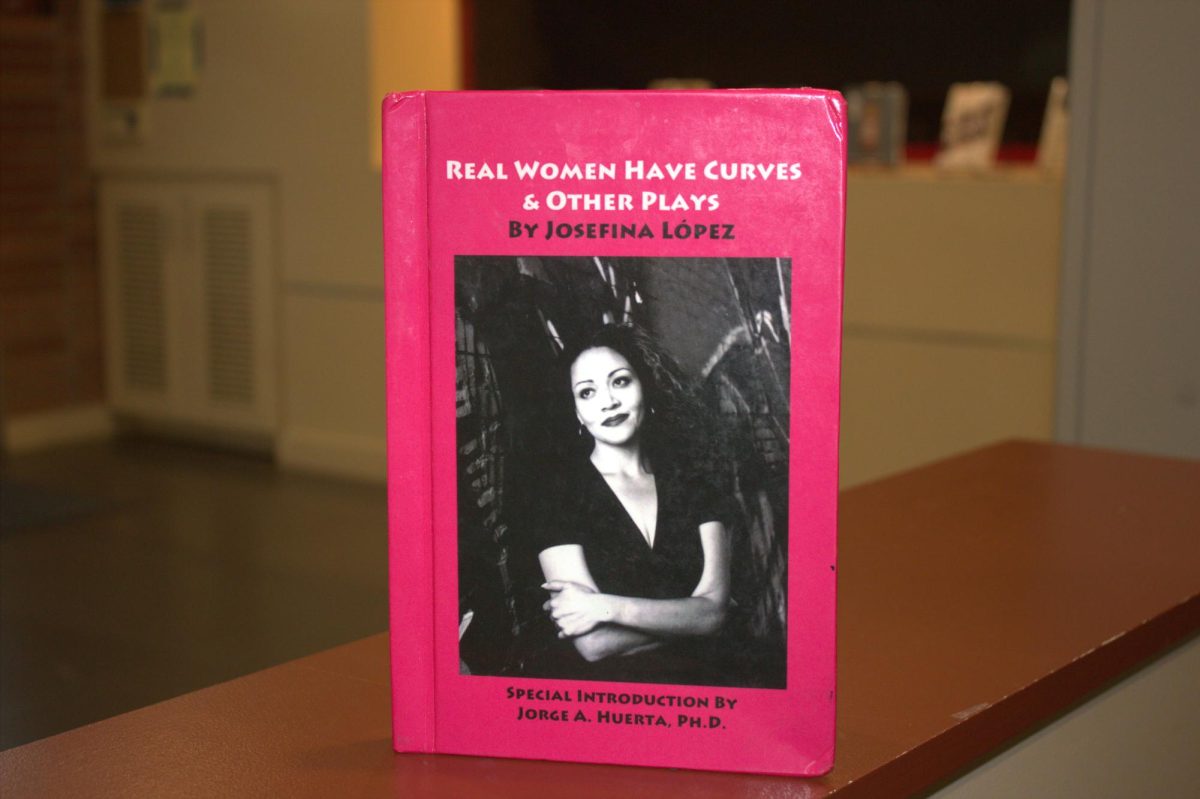Finding literature that portrays a variety of experiences is significant for young adults. We often find comfort in stories that connect to ourselves personally, and it’s valuable to engage in a variety of narratives.
Josefina Lopez is an author and producer of several plays. She has also been a professional screenwriter in Hollywood for almost 30 years. Lopez spoke at Arcadia High School (AHS) on Nov. 12 about her play Real Women Have Curves, published in 1990. She spoke to the seniors taking the Women’s Literature class about her Latinx immigrant experiences, gender politics, and discussions about body image.
Real Women Have Curves is about Ana, a girl with dreams of going to college and pursuing her writing career. Although she doesn’t like working at the sewing factory in East Los Angeles, she continues working there and writes about her experiences in a journal. As Ana learns about the lives of five Mexican-American women working at the factory, she develops a connection with them.
“It was really empowering to see Ana change her perspective towards the women in the garment industry and learn to appreciate all of them and all the things they taught her,” senior Jocelyn Lee said. “The play really shows the idea of women empowerment, teamwork, and being heroines of their own stories, which can really inspire and encourage many young girls and women to stand up and work towards their goals and dreams.”
Real Women Have Curves encompasses everything Lopez is passionate about.
“As a woman myself, it feels empowering reading a book about body positivity,” senior Jasmyn Garza said. “I think many other women can benefit from having more open discussions about these topics.”
Lopez’ story discusses societal pressure and body image issues, immigration and deportation, familial relationships, and culture. In the end, her story is about uplifting women and teaching resilience. The play is a prime way to communicate these larger themes to the students.
“The play was written very well and in a pretty easy-to-understand and relatable manner,” senior Tracy Tian said. “It touches topics that were familiar to 17-18 year olds.”
After having read and understood the play, Women’s Literature students reflected on Lopez’s personal story and everything that went into the play during the presentation.
As Lopez shared her story with the students, Senior Trinity Cardoza said, “she made it very clear that she is very headstrong, doesn’t care about what others think, and doesn’t wish to conform to anything. This is what she hopes the students listening will learn from.”
During the presentation of Lopez’ play, she dives into the influences in her life that pushed her to start writing and advocating for women. During her participation in school plays, her teacher told her that she wasn’t thin enough to receive the lead role. During rehearsals of a play, A Chorus Line, her teacher shared the difficult realities of being an actress—if you want the lead role, you have to lose weight. Lopez didn’t accept this, and she worked to create art that didn’t leave anyone out. In order to do this, she decided to write a story where she was the protagonist. Lopez explained how she tried to make her community better and give back by creating theater for people without the opportunities.
“We learned about women’s empowerment and minorities and how Lopez didn’t fit into society’s beauty standards and was called fat and crazy all her life, which led to her challenging and fighting for her humanity and rights,” Lee said. “[Her presentation] allowed me and others to really acknowledge Lopez and her reasons for writing this book and creating all these female heroines who defy stereotypes and learn to love themselves.”
Not only were women who didn’t fit the typical industry body type left out of stories, but Mexican-Americans were rarely represented in the media. When they were included, Lopez noticed that stories often portrayed them as side characters or gang members. The media entirely glossed over the important aspects of her community, while they would only showcase the shootings and violence. Lopez emphasized how beautiful her community is and the amount of beauty Mexican-Americans have to offer.
Lopez took this anger and transformed it into passion to challenge injustices. She put all her “rage on the page.” In her writing process, anger was equivalent to passion. This is the advice she gives to the students, because she feels that it helps articulate feelings better.
Garza said that Lopez, “comes across to me as a resilient and empathetic person. She was very engaging and had a power in her voice when she spoke.”







